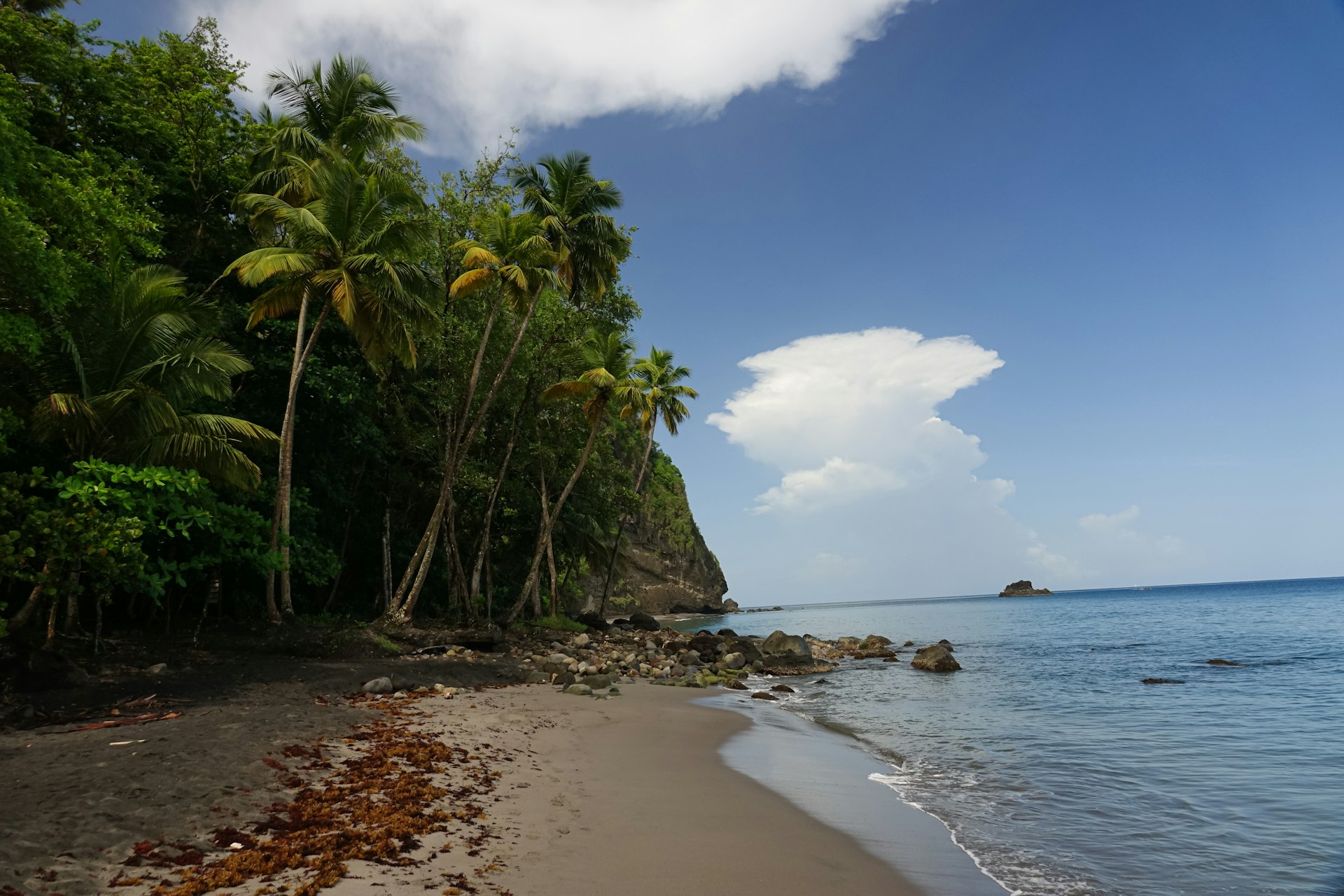Eco-Friendly Island Destinations: Sustainable Escapes for Conscious Travelers


Photo by Adrien Stachowiak on Unsplash
Introduction: Why Choose Eco-Friendly Island Destinations?
As the world becomes increasingly aware of environmental challenges, more travelers are seeking destinations that not only offer breathtaking scenery but also prioritize sustainability and local well-being. Islands, with their fragile ecosystems and unique cultures, are at the forefront of this movement. Choosing an eco-friendly island for your next adventure isn’t just a travel trend-it’s a way to support conservation, empower communities, and ensure that paradise remains unspoiled for future generations. This guide explores the top islands leading in sustainable tourism, and provides actionable steps for planning an environmentally responsible trip.

Photo by Mohamed Sameeh on Unsplash
What Defines an Eco-Friendly Island Destination?
An eco-friendly island destination is characterized by a commitment to environmental stewardship, community engagement, and sustainable practices at every level of tourism. This often includes:
- Investment in renewable energy and reduction of fossil fuel dependence
- Strict conservation programs protecting biodiversity and natural habitats
- Support for local economies through responsible tourism and fair trade
- Low-impact accommodations such as eco-lodges and green-certified resorts
- Promotion of gentle recreational activities (e.g., hiking, kayaking, wildlife watching)
- Regulation of development to prevent overtourism and habitat destruction
Travelers can play a vital role by choosing destinations and providers that demonstrate these commitments, and by making informed choices throughout their journey.
Top Eco-Friendly Island Destinations
Dominica: The Nature Island
Dominica stands out as a leader among Caribbean islands for its nationally led ecotourism program. Known as “The Nature Island,” Dominica protects its biodiversity through climate resilience initiatives and a comprehensive ban on single-use plastics and Styrofoam. Visitors can immerse themselves in activities like hiking, bird-watching, kayaking, and snorkeling. Wellness is also a focus, with healing sulphur spas and organic local food readily available. Eco-lodges such as the Rosalie Bay Eco Resort and Banana Lama Eco Villa offer sustainable stays and direct engagement with local communities. Travelers interested in working remotely can explore Dominica’s extended visa options for long-term stays in nature [1] .
Nevis: Preservation and Community
Nevis takes a unique approach to sustainable tourism by limiting development and ensuring all its beaches remain public. Construction above 1,000 feet is forbidden, safeguarding the island’s rainforests and coastlines. Ecotourism here emphasizes gentle enjoyment of nature, with opportunities to volunteer for wildlife conservation such as the Nevis Turtle Group. Accommodations like Oualie Beach Resort and Golden Rock Inn exemplify a sustainable ethos by supporting local producers and maintaining expansive green spaces [1] .
Grenada: Caribbean Sustainability in Action
Grenada’s tourism is deeply intertwined with conservation. National parks and wildlife programs are well-funded, and the island boasts an artificial coral reef to promote marine biodiversity. Although cruise tourism exists, travelers can minimize their impact by choosing locally owned operators and utilizing public transit. Grenada Blue Horizons Garden Resort, the island’s first Green Globe Gold certified property, and Calabash Luxury Boutique Hotel are among the eco-friendly lodging options supporting both the environment and local charities [1] .
Isla Holbox, Mexico: Small-Scale, Big Impact
Accessible by ferry from the Yucatan Peninsula, Isla Holbox maintains its fishing village roots and supports a fragile ecosystem. With no cars allowed, transport is by golf cart or bicycle. Family-run hotels and restaurants emphasize resource conservation and sustainable sourcing. Activities focus on kayaking, snorkeling, and kiteboarding, with ethical wildlife experiences available for those wishing to see whale sharks. Highly recommended stays include Casa Las Tortugas and Las Nubes, both exemplifying eco-chic design and wellness programming [1] .
Fiji: Island Sustainability for the Pacific
Fiji goes beyond its postcard-perfect beaches by fostering a culture of sustainability in its tourism sector. Eco-resorts support community development and local conservation efforts, often providing cultural exchange opportunities. Travelers can engage with local initiatives, participate in reef conservation, and stay at resorts with robust environmental policies. For more details on Fiji’s eco-travel options, refer to major travel platforms or official Fiji tourism resources [2] .
Palau: Ocean Conservation Hub
Palau is internationally recognized for its pioneering marine conservation, notably as the site of the world’s first shark sanctuary. Visitors can support local conservation through eco-friendly tours and guided snorkeling or diving expeditions that prioritize low-impact interaction with marine life. Palau’s tourism model balances visitor access with robust environmental regulations, making it a model for oceanic sustainability [2] .
Azores, Portugal: European Island Greenery
The Azores archipelago in Portugal is lauded for its volcanic landscapes and biodiversity. Guided eco-tours allow visitors to experience São Miguel, Terceira, and Pico in a way that supports local conservation. The islands are committed to sustainability at every level, from hiking trail management to green-certified accommodations. For up-to-date details on sustainable travel in the Azores, consult the Portuguese National Tourist Office or major travel guides [4] .
How to Plan Your Eco-Friendly Island Trip
To maximize your positive impact, follow these practical steps:
- Research the island’s official tourism board and look for sustainability certifications among accommodations and activity providers.
- Book eco-lodges or green-certified hotels that demonstrate energy conservation, waste reduction, and community investment.
- Choose low-impact activities led by trained local guides. Prioritize tours that benefit conservation efforts and avoid disturbing wildlife.
- Support local businesses by eating at family-owned restaurants, purchasing local crafts, and using public transportation where possible.
- Minimize single-use plastics by bringing reusable bags, water bottles, and toiletries.
- If seeking wildlife experiences (such as swimming with whale sharks), use established ethical guidelines and operators endorsed by conservation groups.
- Stay updated on travel advisories and environmental guidelines from official island or national authorities.
For the most current and reliable information, consult official tourism board websites, established travel guides, or environmental organizations focused on sustainable travel.
Overcoming Challenges and Maximizing Impact
Traveling sustainably can present some challenges, such as higher costs for eco-certified accommodations or limited infrastructure in remote locations. To address these:
- Plan and book well in advance, as eco-lodges may have limited availability.
- Communicate your sustainability priorities when booking and ask providers about their environmental policies.
- Where green-certified accommodation is unavailable, choose locally owned and operated alternatives with transparent practices.
- If public transit is limited, consider carpooling or using shuttle services arranged by your accommodation.
Remember, even small actions-like picking up litter or participating in local conservation events-can have a meaningful impact.
Alternative Approaches: Responsible Choices Beyond the Top Islands
While the islands highlighted above are recognized leaders, many other destinations are making strides in sustainability. Research the latest developments in eco-certification, community-based tourism, and conservation projects in your chosen region. Use search terms like “eco-friendly island travel [destination],” “green certified hotels [island],” or “community conservation [island name]” for up-to-date resources. Official tourism boards, reputable travel publications, and nonprofit organizations such as Ethical Traveler and the Global Sustainable Tourism Council can provide guidance and recommended providers.
Key Takeaways
Eco-friendly island travel offers a rewarding way to see the world while preserving its most delicate environments. By making informed choices, supporting local economies, and prioritizing sustainability, you can ensure your island escape leaves a positive legacy. For detailed, up-to-date advice, refer to official tourism boards, established travel guides, or recognized conservation organizations before booking your trip.
References
- [1] Mindful Escapes (2023). Best Islands to Visit for Eco-Conscious Travelers.
- [2] IMPT (2025). Top Eco-Friendly Destinations in 2025 for Responsible Travelers.
- [3] Risalat Consultants (2025). Top Ecotourism Destinations in 2025 – 15 eco-friendly places to visit.
- [4] Lonely Planet (2025). 12 Best Sustainable Vacation Destinations for 2025.






